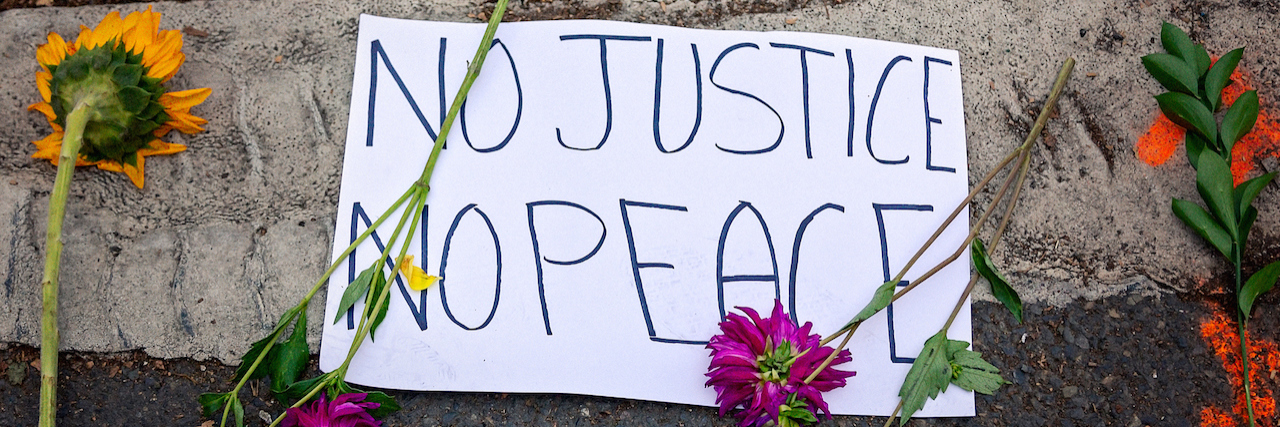Facing Racial Trauma – Again and Again – as a Black Woman With Anxiety
Philando Castille. Sandra Bland. Yvette Smith. Malissa Williams. Timothy Russell. Tamir Rice. Akai Gurley. Jonathan Ferrell. Michael Brown. Eric Garner. John Crawford. Rakia Boyd. George Floyd. Terrance Crutcher. Samuel DuBose. Freddie Gray. Walter L. Scott. Breonna Taylor.
Say their names. They were each killed by the police.
Last year, police officers killed over 1,000 people. According to the Washington Post, of that number, 23% of those murdered were black, despite being 13% of the population. In fact, according to research, there were only 27 days in 2019 where police did not kill someone. Black people are three times more likely to be killed by police than white people. They are also 1.3 times more likely to be unarmed. In 99% of these cases, officers have not been charged with a crime, even when there is video evidence. (See more at Mapping Police Violence.)
In communities where police departments have put limits and tighter restrictions on “use of force” and increased mental health training, the number of officer shootings have declined. Videos of these shootings tend to spread like wildfire. Calls for police reform and community policing ring loudly, die down and then cycle back through the news months or weeks later when another shooting captures the nation’s attention.
These statistics are not only troubling, they are triggering. They can also be debilitating for African Americans living with mental illness. This data coupled with the increased media attention, debates on social media and the release of the videos showing police violence can be detrimental to one’s mental health. Every time this happens, the racial trauma is real. It is also systemic and systematic. We simply can not ignore it.
As a black woman living with anxiety, I’ve found that I have to step away from the constant replay of these images on social media for my own self-care.
In a previous article, “We Can’t Undermine the Effects of Racial Trauma“), I offer the following:
If you find that you are experiencing the following symptoms due to the increasing accessibility to these images: intrusive thoughts, flashbacks, difficulty concentrating, irritability and jumpiness, then you may be experiencing post-traumatic stress disorder (PTSD). I would encourage you to seek help from a mental health professional, find support within your community with civic associations and groups who promote social justice and volunteer to bridge the gap that may exist between your community and area officers.
Further, if you find you are struggling to maintain your self-care during this time, find ways to build in breaks by unplugging from social media and the news, set healthy boundaries and reach out for support when needed. It is very easy to be triggered by the constant barrage of racial trauma we are faced with both online and in our day-to-day lives.
Black folks in our community: how are you taking care of yourself right now? Let us know in the comments below.
Getty image via Jennifer Kovalevich

